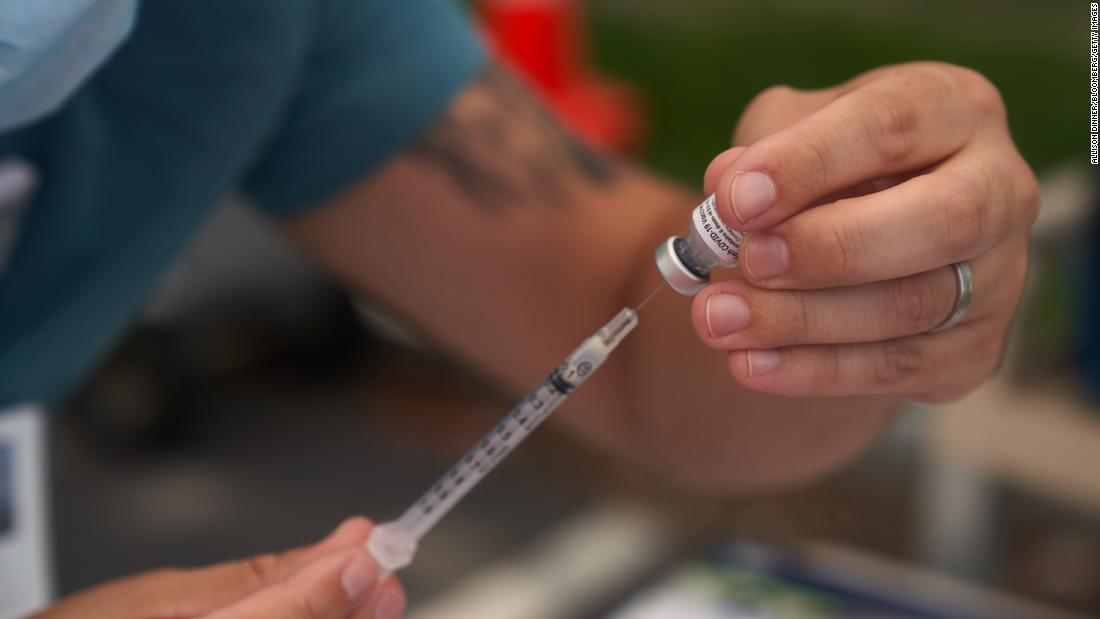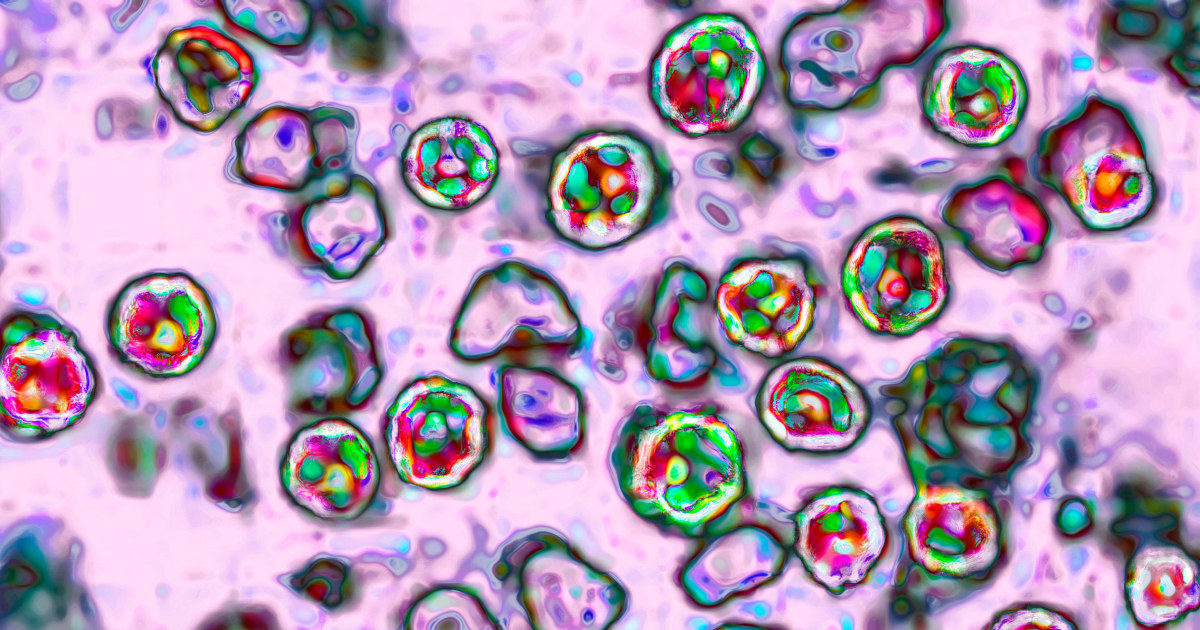USA will apply booster doses against covid-19 1:24
(CNN) -
Sounds confusing: Federal health officials say covid-19 vaccines are working well, providing more than 90% protection against serious illness and death.
They keep people out of hospitals.
However, they also say that studies show that even vaccinated people are more likely to get infected now, so they are now drawing up plans to provide booster shots, if federal regulators give the go-ahead.
How can both be true?
It's due to a triple whammy of naturally waning immunity, a new fast-moving variant, and a population that has been slow to get vaccinated in the first place.
The coronavirus vaccines, especially the Moderna and Pfizer / BioNTech vaccines, are remarkably effective, providing more than 90% effectiveness against infections that cause symptoms.
But it is important to remember that vaccines do not stop the cold from the virus.
advertising
"Some people think that if they are vaccinated, there is some kind of force field surrounding them," said Scott Hensley, an immunologist and microbiologist at the University of Pennsylvania.
However, if the virus is airborne, even vaccinated people will inhale it.
What immunity does is control what happens after that.
ANALYSIS |
As the government talks about booster vaccines, it's time to address the endemic reality of covid-19
Antibodies matter
The first line of immunity comes in the form of antibodies.
These proteins can stick to an invader such as a virus and make it difficult to attack cells or completely neutralize them.
A vaccine increases the levels of these antibodies and trains the body to produce antibodies specifically designed to stop a pathogen like the coronavirus.
Antibodies can stop the viral infection quickly.
This production begins to decline over time, largely because the body needs to make antibodies against other invaders, and space is limited.
Also, some of the newer variants have developed mutations that help them evade antibodies.
"With some variants, the virus can enter cells and replicate for one or two rounds," Hensley said.
That may be what is happening in the US.
The US Centers for Disease Control and Prevention (CDC) released two studies Wednesday that showed immunity declined among people during the summer.
Although vaccines still protected 90% against serious illness and death, the number of people who contracted mild or asymptomatic infections increased.
"Recent data make it clear that protection against mild and moderate illnesses has declined over time. This is likely due both to decreased immunity and the strength of the generalized delta variant," said the Director-General for Health. from the US, Dr. Vivek Murthy, at a briefing at the White House on Wednesday.
A study of nursing home residents showed that immunity to any type of infection dropped from 75% in March to 53% in August.
But a third dose of vaccine increases these antibody levels tenfold, Dr. Anthony Fauci, director of the National Institute of Allergy and Infectious Diseases, said in the briefing.
"Higher levels of antibodies may be required to protect against delta," he said.
Boosters of the covid-19 vaccine are authorized for some.
This is what you need to know
A second line of defense
There is a second line of defense involved: the cellular response.
Viruses attach themselves to certain cells in the body and inject their own genetic material into them, hijacking the cells' natural functions and forcing them to become virus factories.
Immune cells called T cells can recognize these hijacked cells and work together to kill them before they produce more virus.
B cells establish longer lasting antibody production and can also help recognize and neutralize viruses.
This longer-term immune response is likely what keeps people out of the hospital, Hensley said.
B cells and T cells cannot prevent infection, but they nip it in the bud, before people become seriously ill.
"The virus is cleared much more effectively in vaccinated people," Hensley said.
This is where part of the debate about the need for backup comes in.
The World Health Organization and some infectious disease experts note that vaccines are still doing their most important job: preventing serious illness and death.
ANALYSIS |
This is why booster shots for everyone may not be needed yet.
"The third dose will likely do very little to further increase the vaccine's ability to reduce hospitalizations and deaths. That's because the vaccine is already pretty good at it," Hensley said.
But federal health officials said that while there is no indication that this second level of protection has started to wane in the US, data from Israel hints that it may have started to happen there.
Because Israel quickly vaccinated most of its population, US officials are following monitoring there to predict what might happen in other countries.
New variants
The delta variant now accounts for 99% of newly diagnosed infections in the US, according to CDC data.
It is clearly more transmittable than the previous variants.
This alone could explain the new cases, but there is growing evidence that it can circumvent that first line of defense established by antibodies.
"The effectiveness of the vaccine generally decreases against the delta variant," CDC Director Dr. Rochelle Walensky said at the White House briefing.
To support this idea, Walensky cited so-called cohort studies, which are studies that follow the same group of people over time.
One, covering 4,000 healthcare workers and others on the front line, found that the vaccine's effectiveness against symptomatic or asymptomatic infections fell from 92% before the arrival of delta to 64% once it became widespread.
What made the CDC think delta was responsible was this: No matter when these volunteers were vaccinated, it was the arrival of delta that made them more likely to become infected.
OPINION |
Delta: nature or negligence of our politicians?
The air we breathe
No vaccinated person would be at risk of a post-vaccination infection if the virus was not yet circulating.
The coronavirus is transmitted through the air and as long as people are not protected and breathe, they will spread it.
"Even if you're vaccinated, we all breathe the same air," Hensley said.
"Our chances of actually breathing SARS-CoV-2, whether you are vaccinated or not, remain the same."
That's why the CDC has called for even vaccinated people to start wearing masks again indoors, when they could be exposed to the spread.
"It's the only way to keep the virus from getting up your nose," Hensley said.
And while no studies have shown this yet, there is a growing belief among scientists that it takes a lower dose of delta to infect people than with previous variants.
So even if there is only a small amount of virus floating in the air, if people breathe it in, they are more likely to get infected.
And any infected person could infect another.
The coronavirus can be transmitted by people who do not have symptoms.
However, vaccinated people almost certainly clear the infection more quickly.
"The vast majority of hospitalizations and deaths continue to occur among the unvaccinated," Murthy noted.
Should you get the booster shot?
This is what we know
Herd immunity
That's why health officials, doctors and nurses across the country are crying out for more Americans to get vaccinated, and WHO is pushing for more vaccines to be distributed to the rest of the world.
As long as people become infected with the coronavirus and spread it, the virus will infect some vaccinated people.
And it will evolve into new forms, perhaps versions that can more easily evade vaccines.
That's what herd immunity is all about: when enough people are immune to infection that the virus stops circulating.
This usually only occurs with widespread vaccination.
The U.S. Food and Drug Administration (FDA) and the Centers for Disease Control and Prevention (CDC) must make the decision to give people booster doses, but White House officials said that they wanted to have a plan ready for when that happens.
WHO recommends that the most vulnerable get vaccinated before booster vaccines are more widely offered
"We're not saying you need a booster dose right now," Walensky told CNN Wednesday night.
"We are saying that we are starting to see a decrease in the effectiveness of the vaccine against moderate and mild disease and we are preparing for next month because we have seen in other countries that that could herald a decrease in severe disease."
Covid-19














